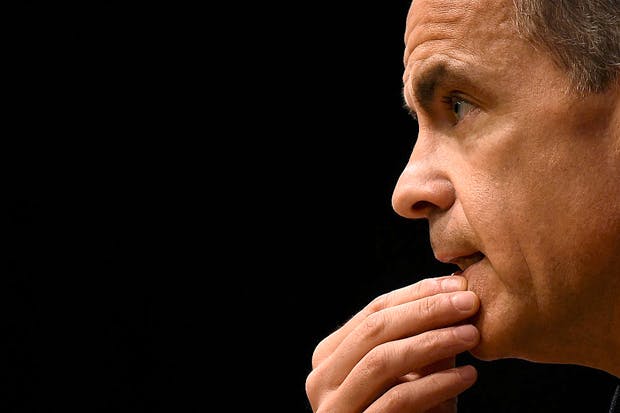Did you see that odd photo of George Osborne looking shifty, queuing up in the Vietnamese jungle for the chance to fire an M60 machine gun? I found it interesting for a number of reasons.
One, obviously, is that it’s probably the first time in five years Osborne hasn’t been pictured wearing a hard hat and goggles. Another is what it tells us about his earnings prospects on the US speaker tour circuit: those guns can fire up to 650 rounds a minute — so at the local tourist rate of £1 a bullet that’s quite an expensive cheap thrill.
Mainly, though, what struck me about that snap was just how quickly fortune’s wheel can turn. Only two months ago, Osborne was the UK’s second most powerful politician, in charge of the world’s fifth largest economy. Today he’s just another middle-class, middle-aged tourist, with kids in tow, living out his midlife-crisis Rambo fantasy.
I wish I could feel sorrier for him than I do. But I’m afraid I found him as disappointing a chancellor as David Cameron was a disappointing prime minister. Some years ago, I used to chat to him in our kids’ school playground. ‘Just you wait till we get into power, then you’ll see how Conservative we really are,’ he once promised when I complained about the wet, centrist, anti-free-market direction his party was taking in opposition. He never delivered on it, though, did he?
His darkest hour, most of us will probably agree, was during the EU referendum when he masterminded the confected and mendacious Project Fear, promising all manner of made-up disasters if Britain voted the ‘wrong’ way. But even before that, he was showing some pretty worrying tendencies: his kowtowing to the Chinese; his closeness to Russian oligarchs and sinister Machiavels like Lord Mandelson; and, most dangerous of all, his addiction to micromanaging and neo-Keynesianism, whose damaging effects we may yet be ruing for many years hence.
Whatever had happened to the zealous young Thatcherite I used to know in the playground? Probably the same thing that happens to a lot of senior politicians: seduced by high-level shindigs at Davos, Brussels and wherever Bilderberg is holding its roadshow this year, they become convinced that the people best placed to run the world are a Brioni–suited cabal of enlightened corporatists, globalist technocrats and Goldman Sachs-trained central bankers like his Canadian import Mark Carney. It’s like the Bullingdon for grown ups, and naturally George wanted to be with them on the superyacht.
This explains not just his fervent support of Remain (essentially the elite trying to shore up its power base) but also his economic policy, which he conducted as a cynical, short-termist game of smoke and mirrors where the idea (to mix a few metaphors) is to kick the can down the road just long enough for everyone involved to be well out of office by the time it all goes pear-shaped.
If it sounds like a conspiracy by the elite against the ordinary people, that’s exactly what it is. Policies like money-printing (quantitative easing), ultra-low (or even negative) interest rates and the mooted and inevitable ‘helicopter money’, are designed to keep asset prices (housing, shares, etc) high and government borrowing cheap. Which is great news if you’re wealthy already or you’re a chancellor with a reputation for austerity who needs discreetly to conjure up more cash with which to bribe the electorate. But apart from creating bubbles, profligacy and cronyism, it also leads to the kind of spectacular, disgusting inequality which may, ironically, have contributed to the popular revolt of the Brexit vote.
People voted Leave for many different reasons, of course. But of one thing we can be pretty certain: not one of these involved a desire to shore up the inefficient, morally bankrupt, rich-favouring economic model of a chancellor who identified so ferociously with the values of the largely unaccountable Brussels elite. Those 17.5 million people weren’t just voting for sovereignty; they were also voting against those politicians — Osborne especially — whose arrogance, remoteness and utter disregard for truth embodied many of the things they most hated about the EU.
That’s why it is entirely right that one of Theresa May’s first moves on becoming Prime Minister was to boot George Osborne into outer darkness, where he belongs. But it’s also why it’s so wrong — and utterly mystifying — that his Canadian placeman Mark Carney should remain governor of the Bank of England. Like Osborne, Carney abused the prestige of his office quite abominably during the EU referendum. Traditionally, the governor of the Bank of England is supposed to avoid partisan politics. Instead, Carney — in the guise of dispassionate economic expertise — sided nakedly with the Remain camp, warning that Brexit was the ‘greatest risk to domestic financial stability’ and that it could lead to ‘technical recession’, ‘higher inflation’ and a ‘sharp’ fall in sterling.
Few of these warnings have come true — save the 10 per cent fall in sterling which, actually, was a much-needed correction to our overvalued currency and a valuable boost for our exporters. Yet instead of showing the appropriate contrition, Carney has remained brazen in the face of criticism — notably from his arch Commons enemy Jacob Rees-Mogg — and insistent on the urgent need for yet more of his Keynesian interventionism to counter what he would have us believe are the negative effects of Brexit.
But this has nothing whatsoever to do with economics. It’s because Carney, like Osborne, is a Davos man through and through. He’s talking down Brexit because, like the rest of the globalist elite, he wants it either to fail or to end up being so watered down we might just as well have voted to stay.
Osborne is gone and good riddance to him. But what’s the use of sacking the organ grinder if his devious little monkey is still in place up to its usual dirty tricks?
Got something to add? Join the discussion and comment below.
Get 10 issues for just $10
Subscribe to The Spectator Australia today for the next 10 magazine issues, plus full online access, for just $10.















Comments
Don't miss out
Join the conversation with other Spectator Australia readers. Subscribe to leave a comment.
SUBSCRIBEAlready a subscriber? Log in